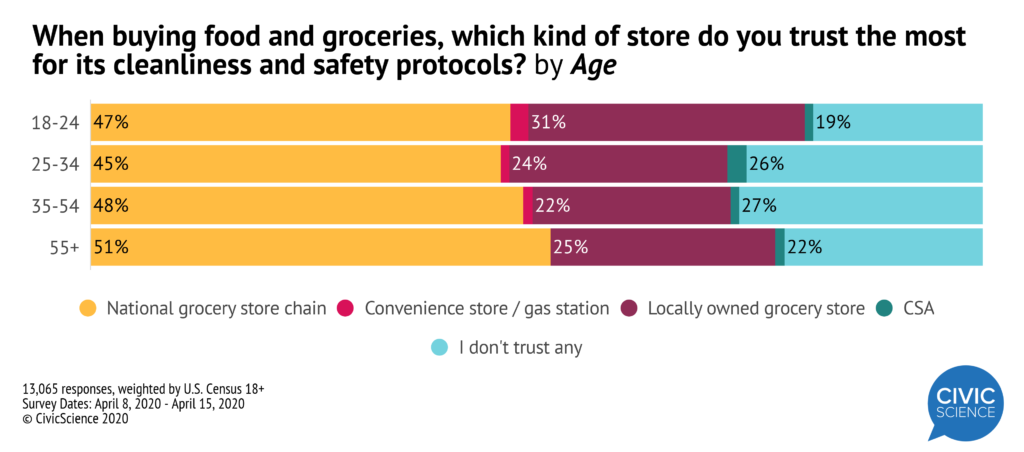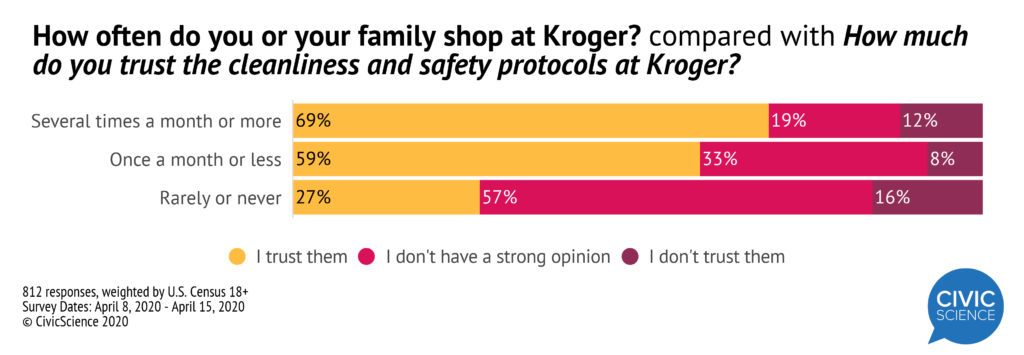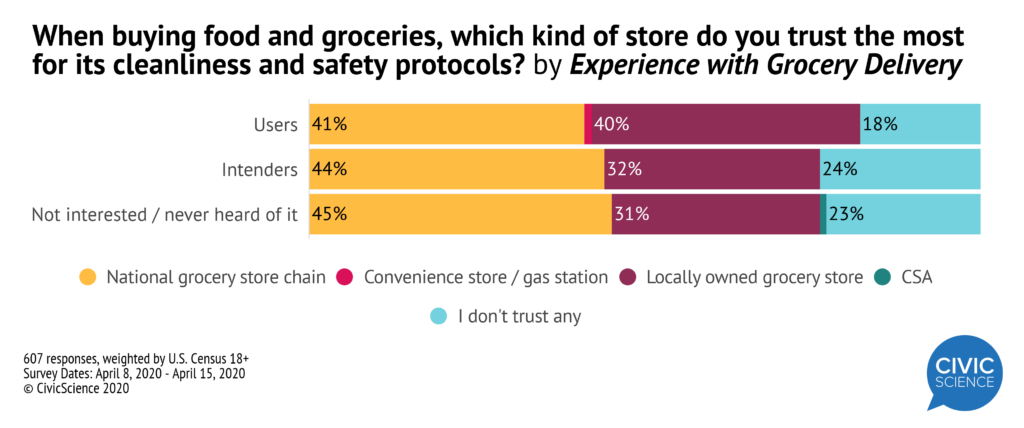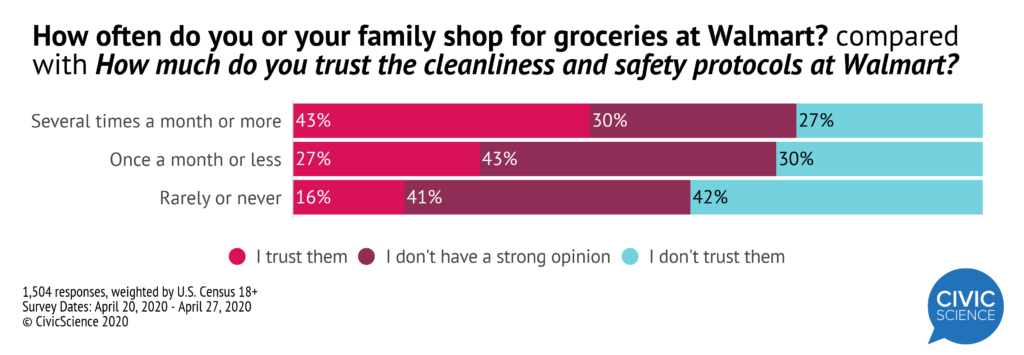Buying groceries isn’t the easiest thing to do right now. Wait lines limiting the number of people in the store, trying to maintain appropriate distance from others, and sparse shelves have turned buying groceries into a constant challenge.
Many grocery chains and big box stores have coronavirus protocols in place. CivicScience investigated which types of stores and brands are the most trusted in terms of cleanliness and safety, and whether or not this affects how and where people are buying groceries.
A survey of more than 13,000 U.S. adults finds that when it comes to buying food and groceries, national grocery store chains are the most trusted for cleanliness and safety protocol, twice that of locally-owned grocery stores. One-quarter of respondents say they don’t trust any store.
So, 47% of people are putting some modicum of trust into national chains to sanitize the store and follow important safety practices. Gen Z (specifically 18- to 24-year-olds) seem to be the most trusting overall; they are the most likely to say they trust locally-owned grocery stores and the least likely to say they don’t trust any store.
On the flip side, Gen Xers are the most likely to be distrustful of any type of grocery store, a sentiment shared by Millennials at almost the same rate.
Location also factors into trust. Half of people living in cities and suburbs say they trust national grocery chains, whereas people living in rural areas are significantly more trusting of locally owned stores.
How Brands Rank – from Kroger to Whole Foods
A deeper dive reveals how brands rank among respondents. Looking at 10 different national grocery chains, membership clubs, and super-center retailers, the survey shows that Kroger is at the very top, with 46% of people saying they trust them overall for cleanliness and safety protocols.
That’s followed by Costco (42%), Publix (40%), Target (38%), Trader Joe’s (37%), Aldi (36%), Whole Foods (34%), Safeway (33%), Sam’s Club (30%), and Walmart (28%).
Discerning where trust originates is two fold. It is easy to assume that the more someone shops at a particular store, the more trust they are likely to have with that retailer. Take Whole Foods for example. The more someone shops at Whole Foods, the more likely they are to trust the store’s cleanliness and safety procedures.
However, data suggest that trust levels can vary by store. Looking at Whole Foods and Kroger, frequent Whole Foods shoppers (who shop several times a month or more) are more trusting of Whole Foods cleanliness and safety protocol than frequent Kroger shoppers are trusting of Kroger’s protocol.
At the same time, both frequent Whole Foods and Kroger’s shoppers are significantly more likely to trust those respective stores, compared to frequent Walmart grocery shoppers. Only 43% of frequent Walmart grocery shoppers say they trust Walmart’s protocol, compared to 76% of frequent Whole Foods shoppers who say they trust Whole Foods protocol.
Walmart Favorability
Walmart presents an interesting case and offers insight into the extent that trust in cleanliness and safety influences where and how people are buying groceries. It ranks the lowest in terms of trust in cleanliness and safety protocol, while less than half of frequent Walmart grocery shoppers say they trust the store’s protocol. However, data tracking shows a sharp rise in overall consumer favorability of Walmart between February and now (from 48% to 51% today), in contrast to static favorability for Sam’s Club, Costco, Whole Foods, and Trader Joe’s, and Kroger’s.
And that is coupled with growth in grocery shopping at Walmart overall.
It seems like many are choosing Walmart for their groceries, even if that isn’t where they typically shop. This suggests that in some instances, convenience overrides brand affinity and trust in cleanliness and safety protocol.
Grocery Delivery
More people have been turning to delivery services to avoid the hassle of going into stores. Interestingly, the data show a relationship between those who use grocery delivery services and trust in locally-owned grocery stores.
Grocery delivery may offer a work-around for people who are using it, however that trend is showing to be rife with its own set of challenges. If problems continue, many using delivery may choose to visit their local grocery stores compared to the rest of the population, who place more trust in national grocery chains.









